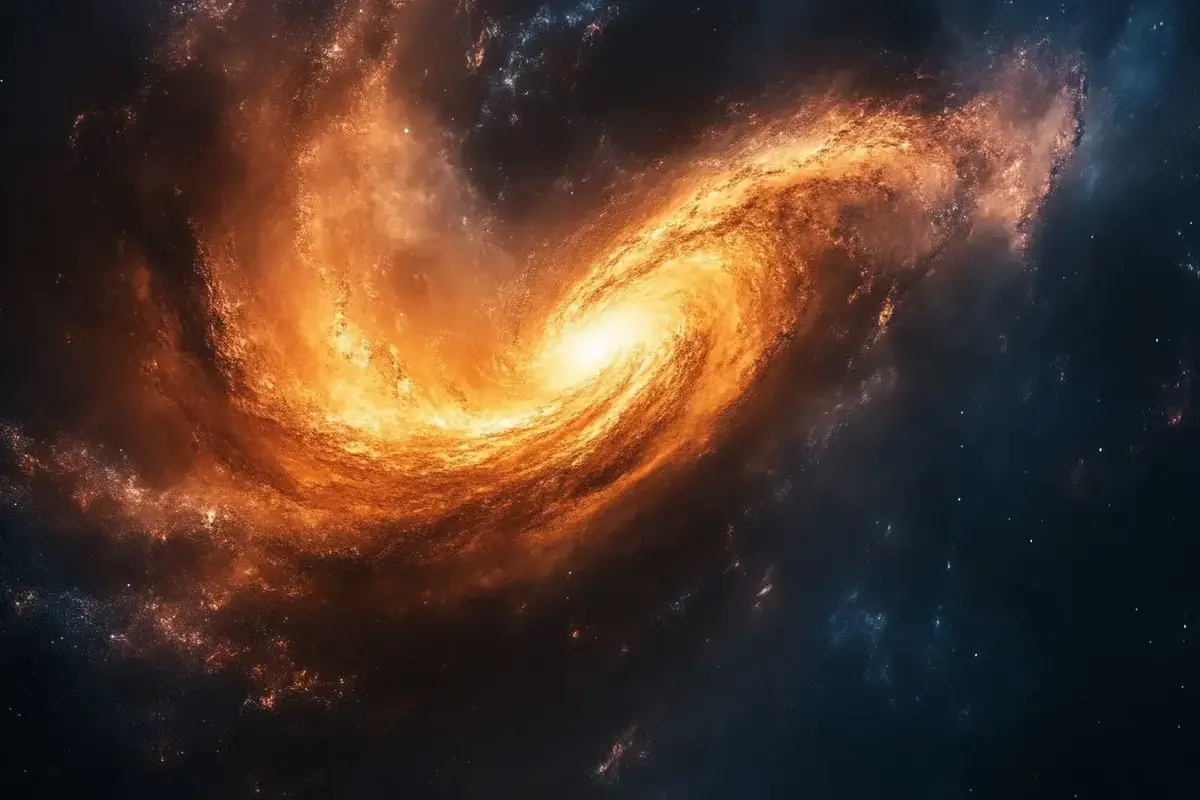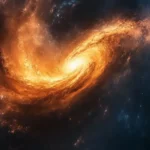Summary
- 🌌 Explanation of the Big Bang and the foundations of traditional cosmology.
- 🔄 Introduction to the cosmic bounce theory and its potential role in explaining the cycles of the universe.
- 🕳️ Discussion on black holes and dark matter, and their possible interrelation in the context of cosmic bouncing.
- 🌊 Presentation of the methods considered for detecting gravitational waves generated by these phenomena, which could revolutionize our understanding of the universe.
Cosmology has always fascinated humanity, offering answers to the deepest questions about the origin and evolution of the universe. The study of the Big Bang has long dominated scientific discussions as the moment of creation of everything that exists. However, a fascinating new study on cosmic bounce cosmology opens the door to the intriguing hypothesis that the universe might have had a “secret life” before this major cosmic event. This revolutionary concept could not only redefine our understanding of the universe but also explain some of its most obscure mysteries, like the nature of dark matter and the role of black holes.
The Big Bang and Traditional Cosmology
The Big Bang represents the foundation of modern cosmology, describing the universe emerging from an extremely dense and hot state about 13.8 billion years ago. This theory explains not only the observed expansion of the universe but also the distribution of matter as we know it. Understanding this concept is crucial for grasping the questions raised by the new study on cosmic bounce cosmology.
The Cosmic Bounce Theory
The cosmic bounce theory emerges as a fascinating alternative to the classic Big Bang model. It suggests that the universe might have undergone several cycles of expansion and contraction. This cyclical view of the universe opens new perspectives on the pre-existence of the universe before the Big Bang as we understand it. The importance of this theory lies in its ability to solve certain cosmological dilemmas, such as the singularity and homogeneity of the universe.
Black Holes and Dark Matter
Dark matter and black holes are two of the most enigmatic phenomena in astrophysics. Black holes, with their extreme gravity preventing even light from escaping, and dark matter, invisible but detectable by its gravitational effects on galaxies, are at the heart of scientific debates. The proposed interconnection between these two entities within the framework of cosmic bounce could illuminate unexplained aspects of the universe.
The Recent Study and Its Implications
The recent study posits that dark matter might be made up of black holes from ancient cosmic cycles. This hypothesis is bolstered by the possibility of detecting gravitational waves emitted during the formation of these primordial black holes. The future ability of observatories like LISA or the Einstein Telescope to detect these waves could not only validate this theory but also revolutionize our understanding of dark matter and the history of the universe.
These innovative perspectives offer a new dimension to our understanding of the universe, suggesting that its history could be much older and more complex than what the Big Bang theory alone has revealed. The study of cosmic cycles and their impact on the formation of dark matter and black holes continues to push the boundaries of our cosmological knowledge and imagination.







